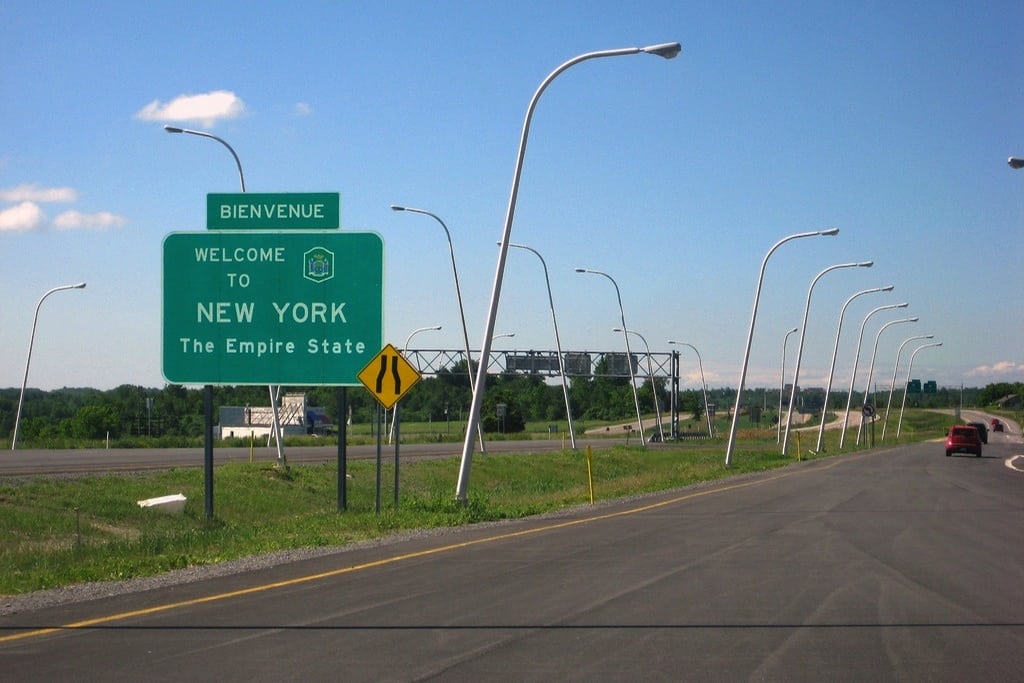Skift Take
The controversial border fees will be heavily discussed as media, politicians, and businesses weigh the pros and cons of fee revenues and the potential impact on the tourism relationship.
U.S. Sen. Charles Schumer, D-N.Y., has described a plan to impose border fees on Canadians entering the United States as “dead on arrival” in the Senate.
During a press conference on Thursday, Schumer said he’s “vehemently opposed” to any such fee, arguing that it would negatively impact economies along the northern border, including those in communities like Niagara Falls and Buffalo.
“If this border fee were to become law, we might as well be putting Stop signs at every border crossing and train headed for upstate New York,” said Schumer. “While the president’s budget has a lot of great ideas, I will never allow upstate New York’s economy to be sacrificed to raise a buck: these fees are dead on arrival in the Senate. A travel fee would send the wrong message to Canadians looking to visit and spend their money in New York — ‘stop’ coming here for meetings that could lead to new businesses and jobs in New York, ‘stop’ fishing in New York and buying bait and tackle here, ‘stop’ visiting our cities and staying in our hotels, and definitely ‘stop’ eating in our restaurants. New York and the United States should be welcoming law-abiding Canadian visitors and the billions they spend inside the Empire State, not nickel and diming them with ridiculous fees.”
President Obama’s fiscal year 2014 federal budget includes a proposal to study establishing and collecting a land border crossing fee at both the northern and southern border. The exact cost of the travel fee is not yet determined. It would require approval by both houses of Congress to become law.
Schumer characterized as it as a “non-starter” in the Senate. He said it would be particularly detrimental to upstate New York where spending by visitors grew by more than 8 percent in 2011 to $15.4 billion, according to Tourism Economics.
In Niagara County, Schumer’s office said 19.1 percent of all employment is sustained by tourists. In Niagara County alone, his office said tourism is a $480 million industry, noting that an estimated 8 million visitors come to Niagara Falls State Park alone.
Section 544 of the the proposed 2014 budget directs the Commissioner of the United States Customs and Border Protection to conduct a study assessing the feasibility and cost relating to establishing and collecting a land border crossing fee for both land border pedestrians and passenger vehicles along the northern and southwest borders of the United States.
Overall, he said the proposed the fees can create a perception that trips to the United States are becoming more expensive, resulting in a decrease in tourism. Schumer also hopes to avoid a scenario in which the Canadians retaliate against U.S. policy by implementing their own fees, which would keep New Yorkers from visiting their favorite spots in Canada.
“First and foremost, it is the federal government’s job to keep Americans safe and ensure that visitors from Canada are law abiding citizens,” he said. “However, a several dollar fee is not enough to stop wrongdoers from entering our country, it is only enough to prevent someone from buying a ticket to the Buffalo Bills game, or from taking a trip to our Rochester Finger Lakes wineries, or shopping at Watertown’s Salmon Run Mall. I am sending a loud and clear message that any border fee is a non-starter in the Senate.”
(c)2013 Tonawanda News (North Tonawanda, N.Y.). Distributed by MCT Information Services. ![]()
The Daily Newsletter
Our daily coverage of the global travel industry. Written by editors and analysts from across Skift’s brands.
Have a confidential tip for Skift? Get in touch
Tags: borders, canada, new york state, politics
Photo credit: Canadian drive I-87/Autoroute 15 southbound from Québec to visit New York. Bobby Hidy / Flickr
